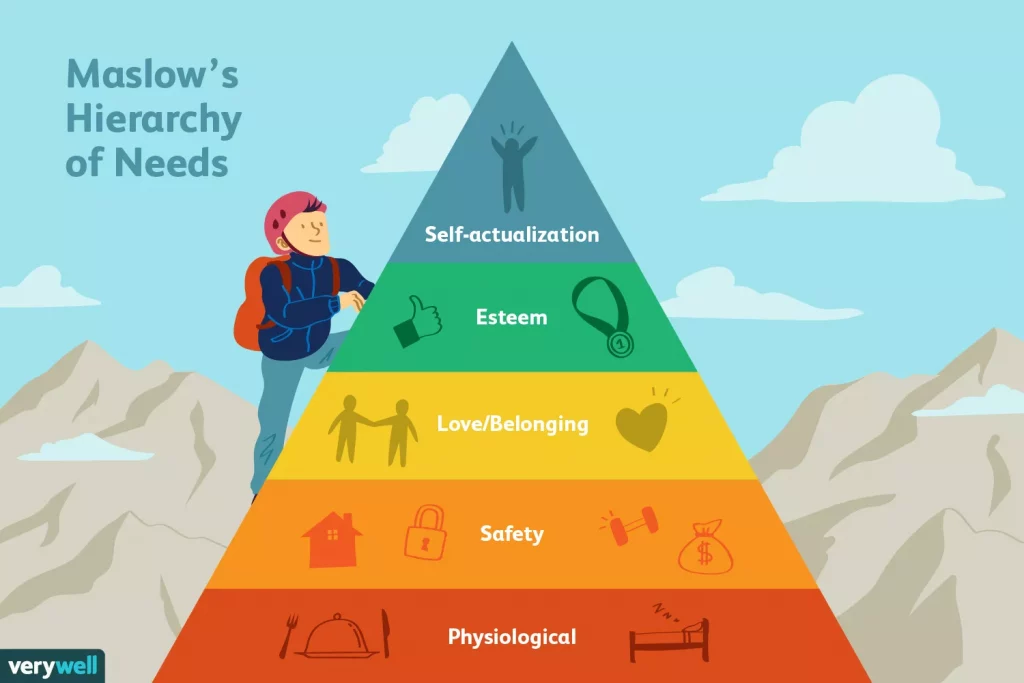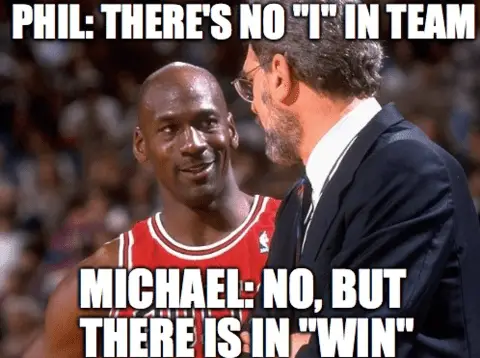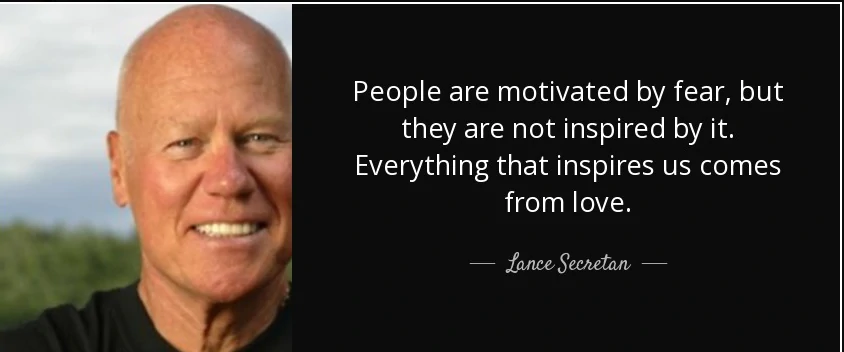What motivates you? Is it money ? Is it power? Is it freedom ? Is it love?
Successful people always find a way to stay motivated, to keep going, and to keep moving forward. But what motivates successful people more than others? Everyone’s motivated for by different reasons, but generally speaking, a deep intrinsic motivation is the powerful force that can motivate all of us from with-in.
There are four basic categories that ‘most types’ of motivation fall into. These motivations ignite our internal fires deep from within, and causes us to act with vigor.

Motivation Drives Everything We Do.
Sometimes we’re consciously aware of our motivations. But sometimes, our sub-conscious takes over and we act with-out even realizing that we’re being motivated by a force deep with-in ourselves.
For example, many of us are sub-consciously motivated by a deep drive to be a better father than our father. Some of us are motivated to make a positive change in the world. And some of us are motivated by a darker influence, something more sinister, like being motivated by revenge, greed, or power.
People are motivated by different things, and almost always, there are multiple and conflicting motivations with-in all of us.
In this article we’ll gain a deeper understanding behind the motivating forces that effect all humans. We”l look at the latest science and expert perspectives to explore what motivates people.
Let’s Dive In.
People Act Based On 5 General Deep Rooted Motivational Categories
Since human behavioral psychology has been studied, researchers and scholars have proposed several theories and models to explain motivation. Most theories (if not all) suggest that all motivation comes from the basic desire of people wanting to achieve something.
For example, and according to famed psychology professor Dr. Maslow’s theory, we humans find motivation from our desire to fulfill five basic needs: social, esteem, biological, safety, and self-actualization.

Abraham Maslow, was an esteemed psychologist who discovered that the human desire to meet these needs, creates “”innate pressures”” (motivation) that influence our actions and behavior.
We all have these needs in us, and they drive us in what we do everyday.
1. Basic Human Needs That Motivate Us
Our basic human needs (not wants) are pretty obvious. They include basic things that all humans need to survive. At our most basic level as people, we are motivated by all of these factors.
- Food
- Water
- Shelter
- Clothing
2. Security and Safety NeedsThat Motivate People
After our desire for the most ‘basic human needs’ are met, our motivations change (and usually tend to become a bit more complex).

People generally want control over their lives, and order in their lives. This leads people to become motivated by psychological forces of wanting both safety and security in their life. Examples include,
- Financial Security
- Family Health Assurance (and Insurance)
- Safety Against Crime
3. Social NeedsThat Motivate Us
People are social creatures by nature. The need for emotional relationships drives human behavior in ways that we are not consciously aware of. Even those who are introverts (and just want to be left alone) still have basic social needs.
For example: It’s basic human nature to have a desire for the following social needs…
- Friendships
- Romance
- Family
- Social Groups
- Love in General
In order for people to avoid problems like loneliness, depression, and anxiety, it is important to feel a ‘sense of community’ and to be both loved and accepted by others.
The need for acceptance is one of the largest sub-conscious motivating forces that so many people lack awareness of.
4. Motivated By Esteem Needs(Respect)
The desire for appreciation and respect are huge motivating forces for a lot of people in this world.

Being motivated by the need for respect isn’t usually a consideration by most people until the first three levels of motivational forces have been satisfied.
Self-Esteem needs become an increasingly important motivational force in order for some people to gain the respect and appreciation of others.
People have a deep rooted need-to-know that they are valued by others, and that they feel they are making a valuable contribution to the world.
Desire to win, academic achievements, and personal hobbies can all play a role in fulfilling peoples esteem needs.
According to Dr. Maslow, both esteem and social motivations combine to make up a “”psychological need for hierarchy”.
Those who lack self-esteem, and lack the respect of others can develop feelings of inferiority which can in-itself become a great ‘negative motivator’.
5. Self-Actualization (self-fulfillment) NeedsThat Motivate Us
Self-Actualization is similar to esteem motivation, but also very different at he same time. People who are motivated by self-actualization want to ‘do more’, and ‘contribute more’, because they feel that they can. Those motivated by self-actualization want to find the best version of themselves.

Those motivated by esteem may want to contribute more to society, but they DO NOT want to do so for the recognition, nor for the contribution. Those who are deeply motivated by self-actualization look to fulfill themselves by doing the best that they are capable of doing.
Self-actualizing people are self-aware, looking for personal growth, less concerned with recognition and the opinions of others, and mainly interested in fulfilling their maximum potential as a person.
Top 8 Individual Motivating Forces: Sub-Categories Under Maslow’s Main Motivational Forces
With-in the five basic motivating categories outlined by Dr. Maslow, there are deeper (more specific) reasons behind peoples motivations.
1. Motivated by Power
According to the Harvard Business Review,
“Power Is the Great Motivator”.

Being motivated by power is very common. In Dr. Maslow’s hierarchy, power can fall either under the social need, or the esteem need category.
Being in power means being able to have a particular influence over a person or an event. Truth be said, everyone wants power or more control in certain ways. But some people are motivated by a deep desire for power more than others.
The desire for both power and control can often stem from a deep rooted insecurity. The desire for power can either be a conscious or unconscious way of overcompensating for internal feelings of inadequacy.
Some people desire power, fame, and influence just because they love to take charge. Others want it because they need the attention, and some just love to have control over their lives, or other peoples lives.
2. Money Motivation
Money is, of course, among the greatest motivating forces in life. Money can buy power, but being motivated by money is also different than just being motivated by power.
Money motivation can fall under any of the first four of Maslow’s motivational categories. For example, money can buy you food, shelter, safety, access to certain social groups, and even certain levels of respect.
Money can buy you power, money can buy you materialistic nice things, and money can buy you freedom. Money motivation is why businesses use financial incentives like salaries, wages, commission, and retirement benefits to motivate workers.
Money satisfies our human psychological and security needs. It acts as a basis of respect, power, and status in social settings. Some people want the finest things in life, and they think they can get them if they have money. Often they can.
BUT
Money cannot buy you true respect, unconditional love, or self-actualization.
3. People Motivated By Legacy (Recognition)

People that are driven by their legacy, and their social recognition, put in extra effort to ensure that they turn the spotlight on themselves whenever they can.
If you are motivated by recognition, you’ll always want to prove others wrong or prove that you can do something. You’ll outshine and outperform anybody, especially if the spotlight is on you.
We only live so long, but our legacy’s can last far longer than our lifetimes. For example, look at the age of the pyramids in Egypt and the legacy that their creators left behind.
Being motivated by legacy falls under Dr. Maslow’s esteem and social categories.
4. Motivated by Passion
People find motivation in the things that they are most passionate about. What’s your passion?
Your career can be your passion, but sadly, most people never develop a passion for their careers. They only go to work for the paycheck but lack an overall passion for their work.
In order to motivate yourself, it’s critical to find a passion in what you do.Being motivated by passion falls under the highest level of self-actualization. When you’re passionate about what you do, you wake up earlier, work harder, work longer, and work smarter than ordinary people. But when you’re motivated by passion, it doesn’t always feel like work. it feels like you’re pursuing your mission.
Passion is powerful. It is what makes and motivates successful people to be successful.
5. Motivated By The Pursuit of Perfection
Perfection gives us direction, a goal, drive, guidance, and inspiration to work towards. Even if perfection is impossible, it gives us a goal to shoot for. How close can we come to perfection?
Being motivated by perfection allows us to forge forward, despite poor odds and obstacles while we chase our passions and dreams.
However, there can also be a fine line between “striving for constant improvement”, and “insisting too much on perfection”. Sometimes its OK to be ‘mostly perfect’ if you can come back to improve on your goal later.
6. People Who Are Motivated by the Desire to WIN.
In every venture, whether business, sports, or even war, individuals MUST exhibit the willingness to win to be successful.

Desire to win can be classified under Maslow’s esteem, social or in some cases self-actualization motivational categories.
The desire to win is what usually translates into resilience, determination, perseverance, hard work, and eventually, performance.
This is why most people motivated by winning at all costs are willing to sacrifice everything and devote their effort, time, and money to their endeavors.
Truth be said, without the desire to win, it can be near impossible for anyone to beat bad odds to achieve the highest goal there is.
However, over-obsession of winning can also be destructive. It can overcome you so much that you may start to cheat and lose the fundamental values you uphold. Being motivated by winning can consume some people causing the to sacrifice other areas of their life such as family, friends, and even love.
After all, winning isn’t always everything.
7. Motivated By A Desire to Help Others
Serving and helping others is a deep motivating force for some people. For example, philanthropists whose path in life is to uplift others, share their wealth, and changing other people’s lives for the better.

Being motivated by helping others is clearly defined under Maslow’s self-actualization category.
According to Winston Churchill, we make a life by giving.
8. Being Motivated By Negative Feelings (3 types)
Negative motivations are interesting because they can really motivate us at any level.
People Who Are Motivated By Fear
Fear is a strong motivator. It makes us uncomfortable and pushes us to want to move out of the discomfort towards a better place (or towards a safer place).

Fear is also an effective motivator for speed. For instance, the fear of being fired by not meeting deadlines doubles our ability to work hard in order to achieve a goal.
Fear for failure is another powerful motivating force. It pushes us towards our goals, and away from scenarios we want to avoid.
People Who Are Motivated By Guilt
Another negative feeling with the power to motivate is guilt. Guilt can lead people to think deeply of others, be empathetic, and act honestly.
Guilt can also be effective in influencing desirable and healthy behaviors. It pushes people to apologize and want to correct the wrongs they do to others.
According to psychology expert Dr. Guy Winch, “We usually respond to feelings of guilt by refraining from taking action, or by making efforts to repair a relationship by atoning for the harm we’ve caused.”
People Who Are Motivated By Shame
Shame is among a person’s most dreaded emotional experiences. While feeling shame deserves all the bad raps it gets, shame isn’t always all bad for us.

In his Theory of Personality Development, Polish psychologist Kazimierz Dabrowski proposes that people experience shame as a means to emerge on the other side stronger, and more at peace with themselves.
Dr. Dabrowski’s theory suggests that shame is vital to the human experience, and ultimately shame is the first step towards personality growth after going through a potential life-altering crisis.
Why Do Some People Hide Their Motivation ?
People are complex, and sometimes we tend to have two reasons for our actions—a good reason and an ulterior motivation.

People with hidden motivations only allow others to know what they want them to think. Their real motives for their actions are being disguised (or at least not publicly advertised or playing coy).
For example, an old friend of mine (who didn’t have a car) used to ask me to “hang out”, but most of the time we ended up spending together was running errands. After a couple repeats of this same senario, I realized her hidden motivation was not necessarily to enjoy my company, but to use me for rides. I don’t mind helping out, but be transparent about your intentions and motivations.
Some people always have some kind of “hidden agenda” operating in their background. Humans naturally tend to have mixed motivating forces, with some being selfish and others socially beneficial.
Are Most People Motivated By Self-Interest ?
(yes, but not everyone)
It is very difficult to understand the deep rooted motivational forces behind every single human action. But according to Maslow’s theory and ‘psychological egoism’, most people are ‘by-in-large’ motivated by self-interest.
Being motivated by self-interest is not a bad thing, and when your own personal self-interest is aligned with the best interest of society, great things can happen.
University of Colorado. Professor of human behavior, Dr. Cropanzano, describes self-interest as a person’s focus on the needs, desires, and personal benefits of one’s self.

Experts also agree, that often times, your actions which display self-interest, are displayed without your conscious awareness.
Acting in one’s own self-interest is commonly referred to as “psychological egoism”.
What exactly is psychological egoism?
Stanford university describes ‘psychological egoism’, as a theory based on the understanding that each person has but one ultimate aim in life…, his or her own welfare.
Dr. Robert Shaver has shown that the theory of ‘psychological egoism’ is supported by the frequent observation of self-interested behavior.
Even ‘surface level’, apparent altruistic behavior, is often revealed to be ultimately self-interested behavior.
Based on the evidence, the biological motivational forces behind the actions of ‘most people’ does appear to be rooted in self-interest.
Final Thoughts: What Really Motivates People ?
What drives you to wake up each morning?
Is it money, is it passion, is it basic needs, or is it to boost your esteem? Whatever your motivations are, if you’re consciously aware of it, then you’re probably miles ahead of most people.
As long as you’re aware of what your deep rooted motivations are, then it empowers you to pursue your goals and move forward in life much more efficiently.
By understanding your motivations at a ‘higher level’, it can also help you understand other peoples motivations, often better than they understand them themselves.
Need some motivation tips ? – Check out or article on finding motivation with-in.
Loved what you read?
Hit that share button and let the world in on the secret – we’d be thrilled!
Got thoughts? We’re all ears for your feedback, corrections, or a good old chat. Don’t be shy; drop us a line.
And hey, don’t miss out on our curated list of must-reads in the recommended books section.
Big thanks for diving in with us today!





